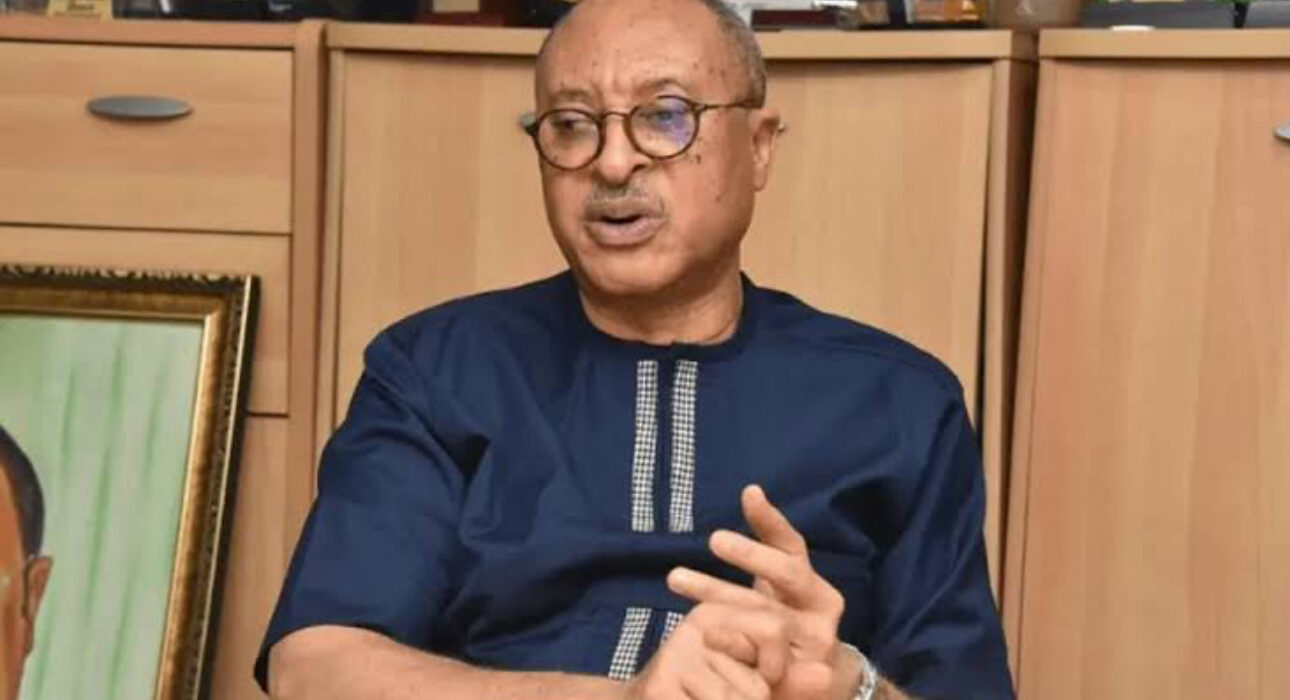DSS Sues Pat Utomi Over Alleged “Shadow Government” Plan

The Department of State Services (DSS) has filed a lawsuit against Professor Pat Utomi, a renowned political economist and public intellectual, accusing him of attempting to establish a “shadow government” aimed at undermining the powers of President Bola Tinubu.
The legal action, filed at the Federal High Court in Abuja, seeks to declare Utomi’s initiative unconstitutional and to halt its activities.
In the court documents, the DSS argues that Professor Utomi’s plan to form a shadow government poses a serious threat to national security by destabilizing the country’s political framework and challenging the authority of the elected government.
According to the DSS, such an initiative risks creating divisions and confusion within the democratic system, thereby weakening the legitimate institutions of government.
In response to the legal action, Professor Utomi has vehemently defended his initiative, stating that the concept of a shadow government is rooted in democratic principles and is designed to hold the government accountable, not to challenge its authority.
He explained that the shadow government would function as an opposition platform to propose alternative policies, criticize government actions, and encourage transparency and good governance.
Professor Utomi emphasized that his objective is to foster responsible political discourse rather than sow discord within the nation’s leadership.
“This is about providing checks and balances in a democracy, not undermining the government,” Utomi clarified in a statement.
The concept of a shadow government is not unique to Nigeria. In many democratic countries, political opposition parties often form shadow cabinets to mirror the government’s structure, offering alternative policies and acting as a counterbalance to the ruling party.
Utomi’s idea of a shadow government aligns with this global practice, aimed at strengthening democracy by ensuring that citizens have access to a range of political viewpoints and policy options.
The court case is expected to bring attention to the balance between free political expression and the preservation of national security.
Legal experts are closely watching the proceedings to determine whether Utomi’s plan will be seen as a legitimate expression of democratic participation or an unlawful attempt to subvert the government.
As the legal process unfolds, political analysts are also speculating about the broader implications for Nigeria’s democratic practices, particularly the role of opposition groups and civil society in holding the government to account.
The case against Professor Pat Utomi raises important questions about the limits of political opposition and the role of dissent in a democracy.
While the DSS’s position focuses on national security concerns, Utomi’s supporters argue that his actions are in line with global democratic norms and aim to enhance the nation’s political discourse.
As the legal battle continues, Nigerians will be watching closely to see how the courts address these complex issues.









